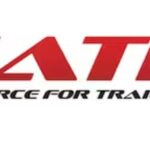The Crucial Role of Financial Wellness for Small Businesses
In the intricate dance of entrepreneurship, small business owners often find themselves juggling myriad responsibilities. Among these, the paramount concern should always be the financial health of the business. Financial experts can attest to the transformative power of prioritizing financial wellness for small businesses. In this article, we’ll explore the importance of financial well-being and […]
, November 23, 2023
In the intricate dance of entrepreneurship, small business owners often find themselves juggling myriad responsibilities. Among these, the paramount concern should always be the financial health of the business. Financial experts can attest to the transformative power of prioritizing financial wellness for small businesses. In this article, we’ll explore the importance of financial well-being and delve into key aspects that business owners should focus on to ensure sustained success.
Understanding the Significance of Financial Wellness
Financial wellness goes beyond mere bookkeeping; it’s about creating a robust and sustainable financial foundation that empowers businesses to weather storms and capitalize on opportunities. Here are some compelling reasons why prioritizing financial wellness is crucial for small businesses:
- Risk Mitigation: Small businesses often operate in volatile environments. Establishing financial wellness practices acts as a buffer, helping to identify and mitigate potential risks before they escalate.
- Informed Decision-Making: A financially literate business owner is better equipped to make sound decisions. From day-to-day operations to long-term strategic planning, financial acumen is a guiding light.
- Access to Capital: Lenders and investors favor businesses with solid financial foundations. Financial wellness not only attracts external funding but also ensures businesses can make the most of these opportunities.
- Operational Efficiency: Efficient financial management streamlines operations. From optimizing cash flow to managing expenses, a financially healthy business operates more smoothly.
- Employee Satisfaction: A financially stable business can provide job security and benefits, fostering a positive work environment. This, in turn, enhances employee morale and productivity.
Key Aspects of Small Business Financial Wellness
Now that we’ve established the importance of financial wellness, let’s explore the specific aspects that business owners should focus on:
- Budgeting and Forecasting:
- Develop a realistic budget that aligns with your business goals.
- Regularly update financial forecasts to adapt to market changes.
- Cash Flow Management:
- Monitor cash flow closely to ensure there’s enough liquidity for day-to-day operations.
- Negotiate favorable payment terms with suppliers to manage cash flow effectively.
- Debt Management:
- Keep a watchful eye on debt levels and interest rates.
- Develop a robust strategy for debt repayment to avoid unnecessary financial strain.
- Investment and ROI:
- Evaluate potential investments carefully, considering the return on investment (ROI).
- Diversify investments to mitigate risks and maximize returns.
- Financial Education for the Team:
- Ensure that your team understands basic financial concepts relevant to their roles.
- Foster a culture of financial responsibility and accountability.
- Legal and Compliance:
- Stay updated on legal and regulatory requirements to avoid penalties.
- Implement robust internal controls to ensure compliance.
- Emergency Planning:
- Have contingency plans in place for unexpected financial setbacks.
- Build an emergency fund to provide a financial safety net.
- Professional Advice:
- Consider seeking guidance from financial experts or consultants.
- Stay informed about industry trends and financial best practices.
In the pursuit of financial wellness, small business owners often find that acquiring essential equipment is a pivotal yet capital-intensive endeavor. This is where equipment financing emerges as a strategic ally. By opting for equipment financing, businesses can access the tools and machinery they need without imposing immediate strains on their cash flow. The structured repayment plans, often with fixed-rate options, align seamlessly with the principles of sound financial management. This approach ensures stability in financial planning, allowing businesses to allocate their working capital strategically across various operational needs. Moreover, equipment financing goes beyond mere acquisition, often bundling additional benefits such as maintenance coverage and technology upgrades. This not only enhances operational efficiency but also contributes to maintaining financial predictability. In essence, the synergy between equipment financing and overall financial wellness empowers small businesses to make prudent investments in assets vital for sustained growth, all while safeguarding their financial health.
In conclusion, the journey to small business success is significantly smoother when paved with a commitment to financial wellness. By focusing on budgeting, cash flow management, debt control, and strategic investments, business owners can not only navigate the complexities of entrepreneurship but also position their ventures for sustained growth and resilience. Remember, financial wellness is not a destination but an ongoing journey, and the dividends it pays are immeasurable.
Other Posts

Equipment Financing for Small Business Owners
Read More
How Market Conditions Shape Equipment Leasing Rates
Read More
Factors Influencing Lease and Equipment Financing Rates for Manufacturing Equipment
Read More
Exploration of How Interest Rate Changes Shape Business Equipment Financing For Small Business
Read More
Maximize Your Savings: New Tax Deduction Allows 100% Write-Off for Equipment Purchases in 2023!
Read More
Protect Your Equipment; Theft Protection
Read More
INDUSTRY NEWS: NATDA Partners with Jocova Financial to Enhance Trailer Financing Opportunities in Canada
Read More
Why You Should Be Financing & Leasing Your Snow Equipment
Read More




